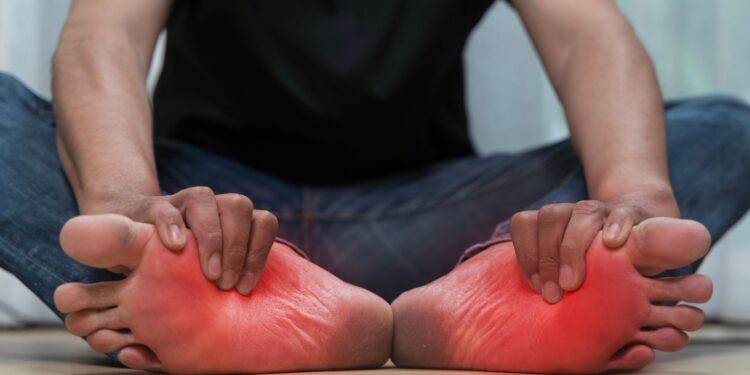When pollen counts rise, many people expect sneezing, itchy eyes, and a runny nose. What surprises them is how foggy the brain can feel at the same time. Words sit on the tip of the tongue. Simple tasks take longer. Small decisions feel heavier than they should.
Seasonal allergies can influence sleep, attention, memory, and mood. The good news: steady habits can help, and longer-term options exist when symptoms return every year.
Why Allergies Can Mess With Your Mind
Allergies trigger an immune response in the nose and sinuses. That response can ripple through daily life in a few predictable ways:
- Poor sleep: Congestion makes it harder to breathe comfortably at night. Light, fragmented sleep compounds daytime fatigue and hurts concentration.
- Inflammation and histamine: Histamine is part of the body’s defense system. It can also contribute to headaches, pressure, and that hazy, slowed-down feeling.
- Medication effects: Some allergy medicines cause drowsiness or mental sluggishness. Even “non-drowsy” options affect people differently.
- Breathing patterns: Mouth breathing dries out the throat and can lead to low-grade headaches and irritability, which reduces cognitive stamina.
All of it can add up and make your mind feel weighed down and foggy, which affects nearly every aspect of your day.
A Daily Plan for Clearer Thinking
Allergy brain fog often eases when you lower exposure, support sleep, and make a few smart routine changes. The plan below is simple on purpose. Pick one or two steps today. Layer in the rest over the next week. Most people notice clearer mornings and steadier energy when they keep at it.
- Protect Your Sleep First
First things first, focus on your sleep. Better sleep is the quickest route to clearer days. Start here:
- Keep windows closed on high-pollen days and run a HEPA air purifier in the bedroom. To further enhance air quality—especially if you live in areas affected by smoke or pollution—consider using a smoke particle destroying air purifier designed to capture and neutralize even the smallest airborne irritants. This can help limit allergens in your sleeping space and reduce symptoms.
- Wash pillowcases and sheets weekly in hot water (about 130–140°F). Dry laundry indoors during peak pollen (you don’t want freshly washed sheets to come in covered in pollen).
- Shower before bed to rinse pollen from your hair and skin.
- If congestion ramps up, slightly elevate your head with pillows to help relieve it.
- Clear the Nose to Clear the Head
If your nose is chronically clogged or runny during allergy season, use nasal saline rinses to help flush out allergens and thin mucus. Be sure to use distilled or sterile water (avoid straight tap water unless you boil and cool it).
Rinse once daily during peak season or after outdoor activity. Once you’re done with each rinse, thoroughly clean the bottle or neti device.
- Time Your Outdoor Activity
While your options might be limited on high-pollen days, fresh air and movement still matter. Check your local pollen forecast and plan longer sessions for moderate days. After outdoor play or exercise, wash your hands and face, change into clean clothes, and keep your outdoor wear out of your bedroom.
- Choose Medicines Thoughtfully
An effective plan is personal. Most people have common allergy meds—think decongestants and antihistamines—on standby at all times, but find what works for you.
If you feel groggy, ask your doctor about non-sedating options. First-generation antihistamines can impair alertness, memory, and reaction times, while newer options are less sedating.
Think about your timing, too. You might find that you think more clearly when you take medication at night, while others may find they do better in the morning. As you work out the details of what fits your needs, keep a short symptom and side-effect log for about a week. This allows you to spot patterns and adjust accordingly.
- Support the Basics
Hydration reduces dryness and congestion. A balanced plate with fruits, vegetables, whole grains, and protein supports overall health. A simple smoothie for busy mornings—spinach, frozen pineapple, banana, and yogurt—goes down easily when you don’t feel your best. Short movement breaks also help: five minutes of stretching or a brisk walk resets energy and mood.
Staying Productive on Foggy Days: Tips and Tricks
Even with prevention, some days will feel heavier and tougher than others. So, set yourself up for success with a few tips and tricks:
- One-task focus: Pick a single high-value task and clear everything else for 25 minutes. Then take a short break.
- Externalize memory: Use a sticky note or simple digital list for names, steps, and numbers.
- Reduce sensory clutter: Lower background noise and avoid harsh, overhead glare if it triggers headaches.
- Hydration cue: Keep a water bottle in view. Set a gentle reminder if needed.
When Symptoms Repeat Every Season
If you spend weeks each spring or fall fighting the same cycle—fatigue, pressure, poor sleep, short temper—it may be time to ask about long-term options that build tolerance to allergens.

Sublingual immunotherapy, a type of allergy immunotherapy, is one option. It aims to train the immune system to react less over time by introducing small, controlled doses of allergens under the tongue. In the United States, tablets for dust mite, certain grasses, and ragweed are FDA-approved; liquid allergy drops are used off-label under clinician guidance. Your allergist or doctor can help determine whether you’re a good candidate based on your triggers and health profile.
How to Talk with Your Allergist or Doctor
If you want to explore allergy immunotherapy, chat with your doctor about it. Go prepared with a good overview of what you’re dealing with:
- A list of symptoms that affect thinking or mood (brain fog, headaches, irritability, daytime sleepiness).
- A quick sleep summary: how long it takes to fall asleep, how often you wake, how you feel on rising.
- A record of medicines you’ve tried and how they made you feel.
- Any patterns you’ve noticed with weather, location, pets, or time of day.
These details will help your doctor plan what targets matter most and create a plan that fits your needs.
The Bottom Line
Allergy brain fog has real, physical roots. It thrives on poor sleep, congestion, and the side effects of chasing symptoms day after day. A steady routine—cleaner bedroom air, regular saline rinses, smarter outdoor timing, thoughtful medication choices, hydration, movement—can lighten the load. In seasons that repeat without relief, a conversation about long-term options like sublingual immunotherapy offers a path beyond the yearly cycle.
Clearer thinking often returns in small steps: a solid night of sleep, a morning without a headache, an afternoon where words come more easily. Put a few changes in place this week and watch for those wins.













Discussion about this post